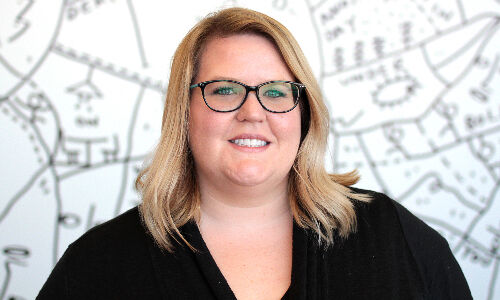Allison Howell: «Why Gossip Improves Firm Performance»
Where communication within organisations has failed, a surprising saviour can help: gossip, writes Allison Howell, Vice President of Market Innovation at Hogan Assessments, in her article for finews.first.
In this section, authors comment on economic and financial topics.
Workplace gossip has long been viewed as a threat to be eliminated by traditional management structures, but research suggests the opposite.
As companies struggle with communication bottlenecks in an increasingly complex business environment, forward-thinking leaders are discovering that well-managed workplace gossip networks can become an asset for maintaining organisational clarity and cohesion.
When official channels fail, workplace gossip becomes an essential communication tool. Recent studies show that organisations with healthy informal networks are proven to adapt quicker to change and spot potential problems before they become crises.
«Through gossip, managers learn about emerging problems.»
Traditional corporate communication often moves too slowly and may lack critical context to help employees make sense of decisions.
That's where gossip steps in, creating fast, efficient information pathways that keep work flowing when official systems stumble. The real-time feedback loop of informal conversations can give leaders invaluable insights into organisational health.
Through gossip, managers learn about emerging problems, employee concerns, and potential solutions. This can help them to address issues quickly before they become crises.
«Official communications can be vague or disconnected from reality.»
During times of change or crisis, employees need information more than ever, and gossip moves faster than any internal memo. While formal processes still assess and clarify the problem, informal networks are already working on solutions.
Official communications can be vague or disconnected from reality. When a new policy rolls out or strategic changes are announced, official messages tend to be sanitised, full of jargon, and light on practical details.
This is where workplace gossip proves invaluable. Through gossip, teams can develop a shared understanding and determine how changes affect their work. This practical interpretation helps bridge the gap between official policy and daily reality.
Effective workplace communication isn't about controlling every message. It's about creating an environment where information flows naturally and productively. When organisations try to control the flow of information, they often achieve the opposite effect.
«Clear boundaries help ensure gossip remains productive rather than a destructive force.»
Modern workplace gossip isn't limited to physical spaces. Digital channels create new networks for informal communication, bringing both opportunities and challenges. Information flows faster and instantly reaches wider networks, helping remote and hybrid teams stay connected through informal channels.
However, this means that a conversation that might once have stayed between three people at lunch can now ripple through an entire office within hours.
The key is distinguishing between constructive information sharing that helps the organisation function and destructive gossip that undermines workplace relationships. Clear boundaries and consequences for harmful behaviour help ensure gossip remains productive rather than a destructive force.
Balance is essential to utilising this undervalued communication tool. Organisations need formal and informal communication channels, structured information flow, and organic conversation. By embracing gossip's role in solving communication problems, leaders can build more effective, connected, and resilient organisations.
Allison Howell is Vice President of Market Innovation at Hogan Assessments. In this role, she leads marketing and product development.
Before joining Hogan Assessments, she worked as a human resources consultant and executive coach in Paris, France.
Allison has worked on projects with global companies such as Bic, Coca-Cola European Partners, Louis Vuitton, and Chanel, as well as with several government agencies and non-profit organizations.















































